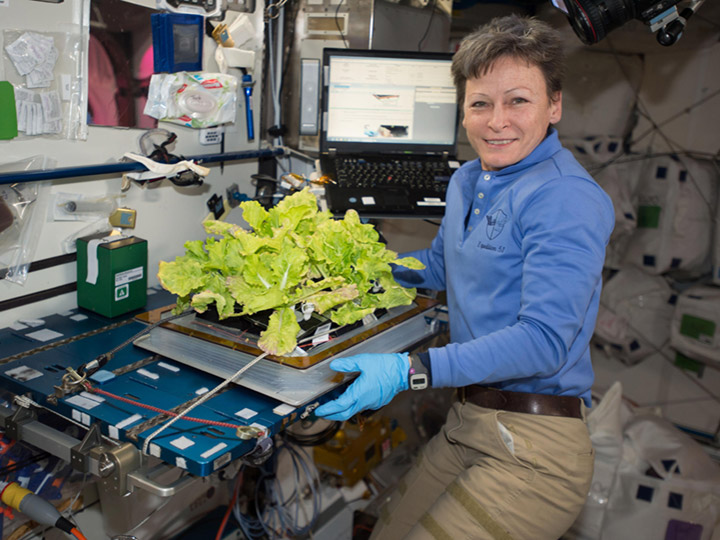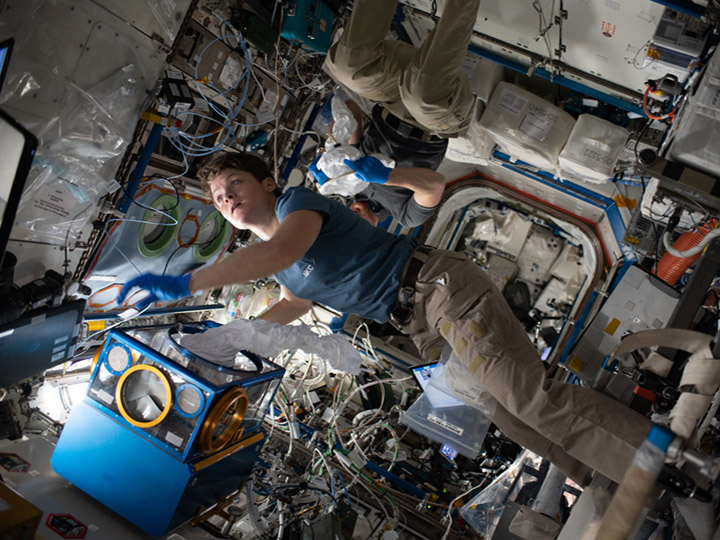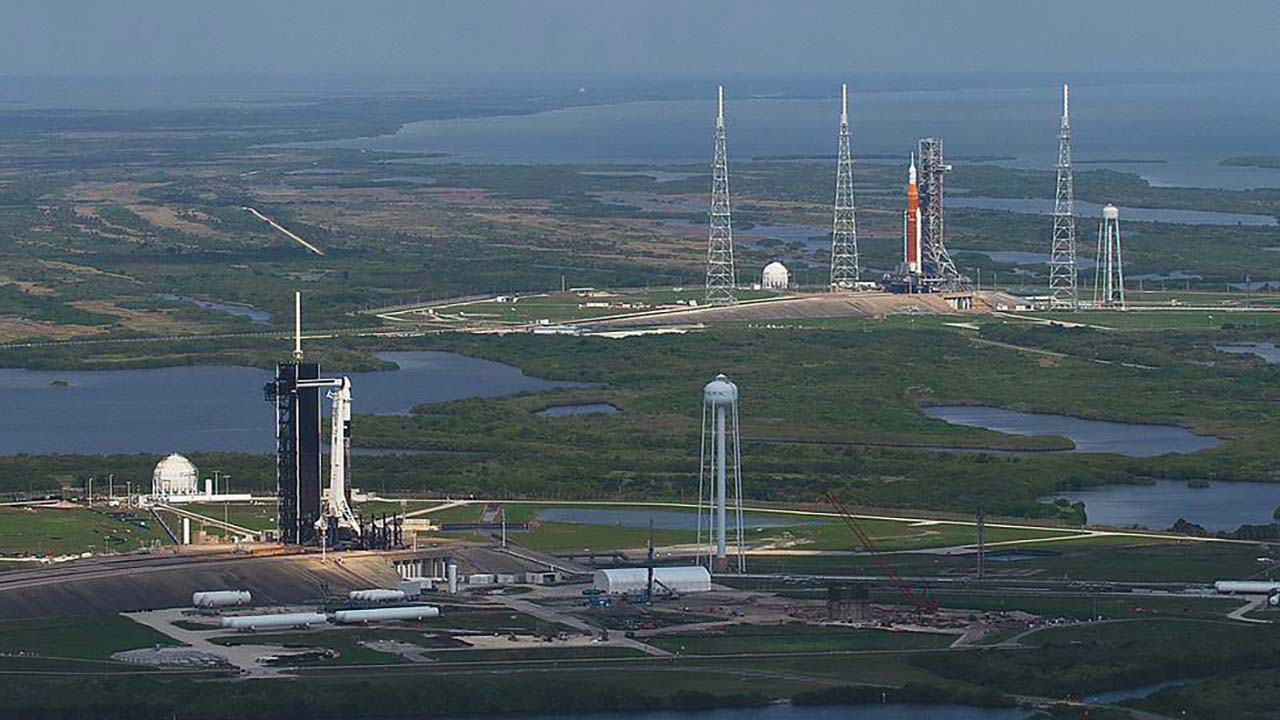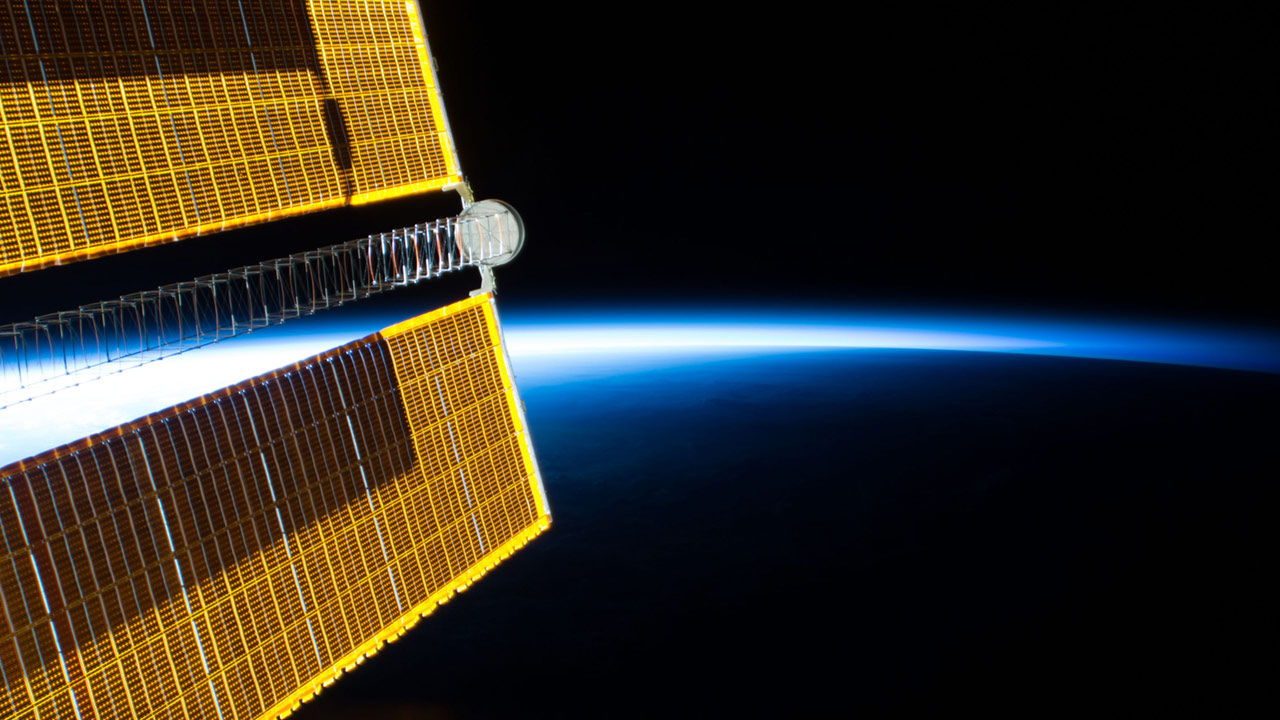Although it may seem a bit surprising, research conducted off of the ground—onboard the International Space Station (ISS) National Lab—could help improve agriculture back on the ground. In celebrating National Agriculture Day, below highlights some of the important agriculture-related research taking place on the ISS National Lab.
- Researchers at the University of Florida are using the ISS National Lab to study fundamental plant development processes in an environment free from the masking effects of gravity. Space-based research provides valuable insights on plant structure and behavior that translates directly to understanding how these processes work on Earth—information that could be used to help improve crops and expand agricultural productivity. Read more in the Upward feature article “Staying True to Your Roots: Plants on the ISS.”
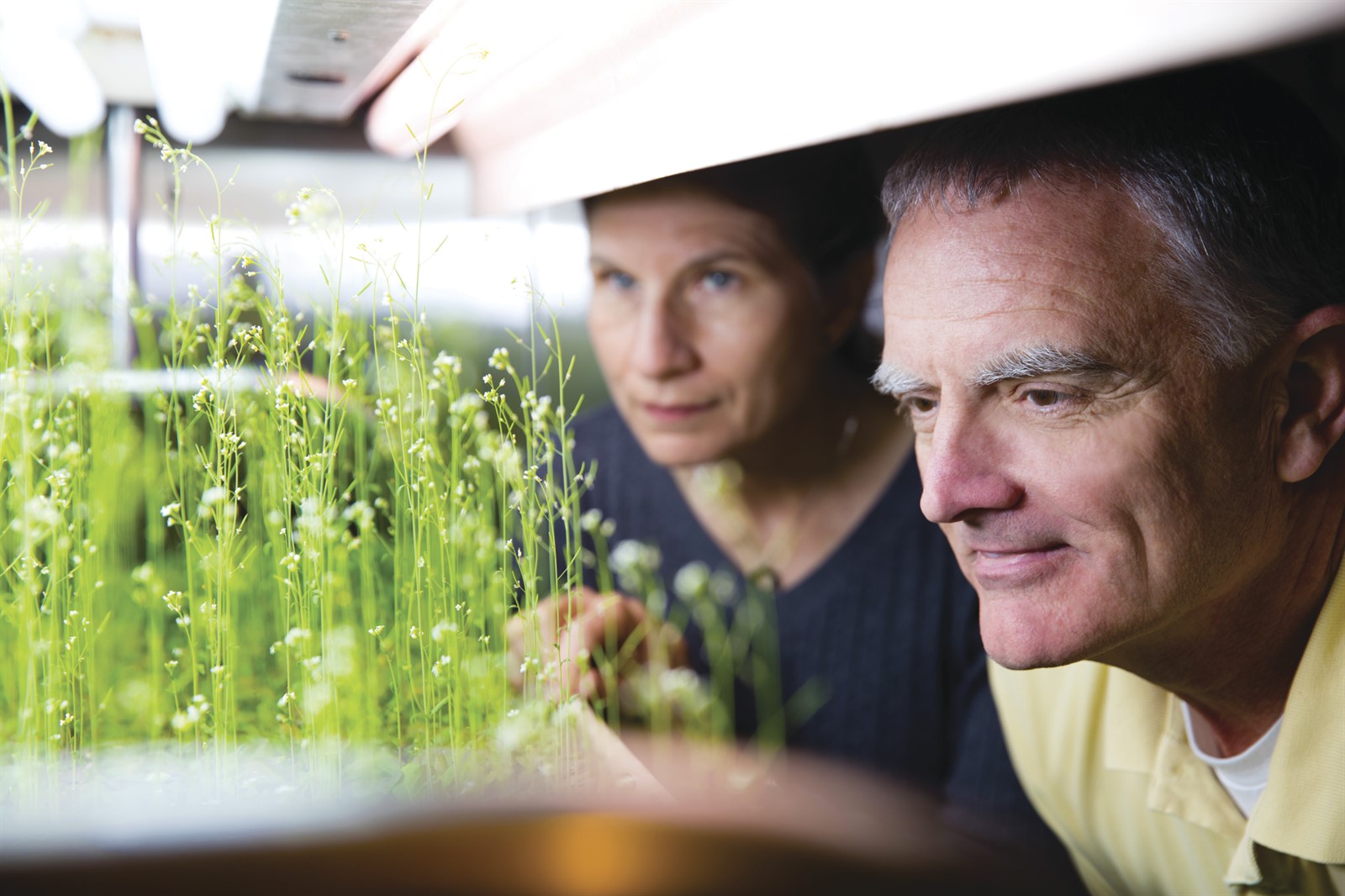
Anna-Lisa Paul and Rob Ferl in the University of Florida Space Plants Lab.
Media Credit: Image courtesy of ISS National Lab
- Scientists from the University of Maryland, Baltimore County used remote sensing imagery taken from the ISS National Lab to develop algorithms to measure ecosystem productivity, or the ability of an ecosystem to convert carbon dioxide into biomass. Understanding how ecosystem productivity changes over the course of a day or a growing season is important in improving crop and forest growth and optimizing the use of resources such as water and fertilizer. Additionally, information on how ecosystem productivity varies globally could enable a better understanding of how changes in carbon dioxide levels in the atmosphere could impact future agricultural production. Read more in the ISS360 article “Observing Ecosystems from Orbit: Evaluating Changes in Ecosystem Productivity Using Imagery from the Space Station.”

Map of gross ecosystem production (GEP) derived from HICO imagery from the ISS for the study area around Lethbridge, Alberta, Canada. Image collected July 2, 2013. The triangle indicates the location of the flux tower. The area is a mixture of grassland and crops, resulting in a complex spatial pattern of productivity.
Media Credit: Image courtesy of Karl Fred Huemmrich
- In collaboration with the United States Department of Agriculture, biotechnology startup Pheronym seeks to conduct an investigation on the ISS National Lab focused on environmentally friendly agricultural pest control using a beneficial type of nematode (microscopic roundworm). Naturally occurring bacteria in the gut of certain types of nematodes kill insects that are detrimental to crops. Pheronym has developed methods that leverage such nematodes for agricultural pest control, which could reduce the need for chemical insecticides. Read more in the ISS360 article “On the Hunt: Studying Insect-Killing Worms in Space.”
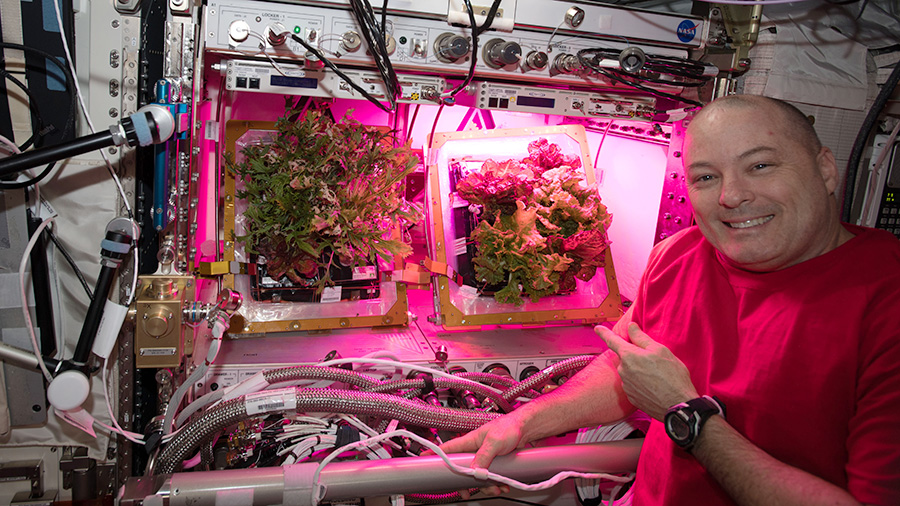
NASA astronaut Scott Tingle tends to plants grown inside the Veggie facility in support of space botany research. Sierra Nevada Corporation pushes the boundaries for sustainable long-term missions by advancing plant growth in space with its development of Veggie for NASA.
Media Credit: Image courtesy of NASA
- Budweiser conducted a series of experiments on the ISS National Lab examining barley germination and malting in microgravity. Barley is the fourth largest cereal grain grown in the world and is used in a variety of products. Knowledge gained from this research could not only help Budweiser develop new malt barley varieties that are more tolerant to extreme stress environments on Earth but could also provide valuable information to the broader agricultural community to help improve barley crop growth. Read more in the ISS360 article “Malting Barley in Microgravity: Budweiser’s Third Barley Experiment on the ISS.”
- An upcoming ISS National Lab investigation led by a researcher at Cornell University and co-sponsored by the National Science Foundation aims to study the movement of liquid droplets across a solid surface to gain a better understanding of inertial spreading. Inertial spreading is important in many processes on Earth, including applications in the agriculture industry. For example, when applying insecticides to crops, it is important to understand the inertial spreading of the liquid droplets across leafy plants. Read more in the ISS360 article “Looking at Liquid Motion in Microgravity.”

NASA astronaut Karen Nyberg watches a water bubble float freely between her and the camera, showing her image refracted in the droplet.
Media Credit: Image courtesy of NASA
- Three investigations awarded from the ISS Cotton Sustainability Challenge, sponsored by Target Corporation, seek to leverage the ISS National Lab for research aimed at improving the utilization of ground-based natural resources such as water for sustainable cotton crop production. Read more about the challenge and the selected projects on the ISS Cotton Sustainability Challenge web page.

- The Tomatosphere™ program, a Space Station Explorers partner program operated by First the Seed Foundation, allows K-12 students grow and study tomato seeds that were exposed to spaceflight conditions onboard the ISS National Lab. The primary goal of the First the Seed Foundation is to help students understand where food comes from and spark an interest in agriculture. Each year, more than 500,000 students participate in the Tomatosphere program! Read more in the Upward feature article “The Tomatosphere Education Program: Entering a Fruitful New Phase.”

European Space Agency (ESA) astronaut Thomas Pesquet with 1.2 million Tomatosphere seeds that launched to the ISS on February 19, 2017.
Media Credit: Image courtesy of NASA/ESA


